Business
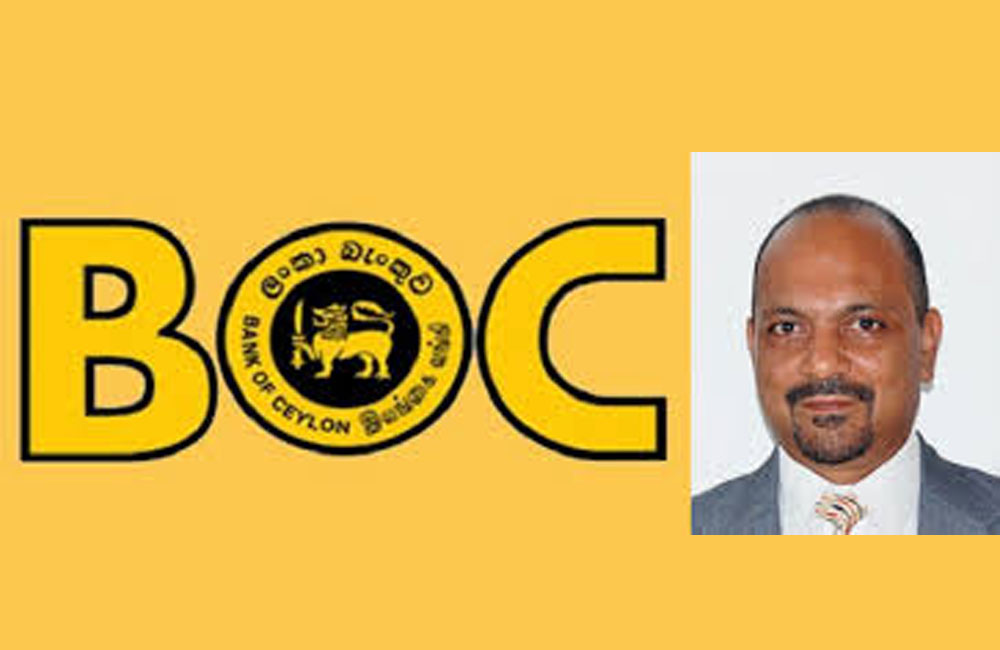
BOC strengthens its position as bankers to the nation
The BOC maintains asset quality, capital adequacy and profitability as well as a working relationship with foreign banks in the current difficult local and international operating environment, he told a media conference.
He noted that the bank’s international and local trade transactions are resilient with its sovereign status, full state ownership and high systemic importance.
Referring to ongoing import restrictions and the bank's facilities in local and international trade, he categorically stated that it is following the current regulations in its procedure of opening Letters of Credit for importations in close relations with foreign banks.
Referring to certain reports on the rejection of the bank’s LC’s by foreign banks, he noted that no such refusal had been made by any such bank up to now as BOC has a strong sovereign credit profile.
It has recorded the highest asset base of LKR 2.9 trillion, highest deposit base of LKR 2.3 trillion and has maintained its market leadership in trade finance, treasury operations including its’ more than 40% market share of inward remittances.
The recent downgrade of the sovereign and banking institutions in Sri Lanka had a minimal impact on the soundness of the bank and its international operations continue uninterrupted, he added.
Being a bank that has maintained its international presence for over eight decades, its foreign correspondent relationships have never been questioned and have been growing from strength to strength, he reiterated.

CBSL ensures financial consumer protection
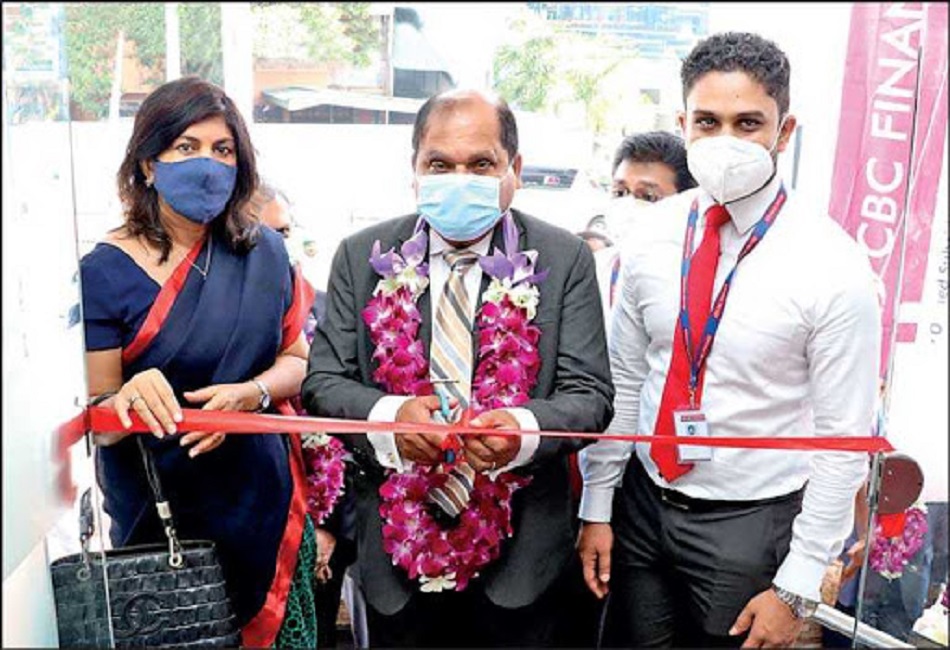
ComBank launches CBC Finance as successor to Serendib Finance
The Commercial Bank of Ceylon PLC has announced the launch of CBC Finance Ltd, the bank’s fully-owned Licenced Non-bank Finance Institution (NBFI), formerly known as Serendib Finance and Indra Finance.

Lanka Sathosa-MILCO partnership powers Highland to new high
Working together, the two State sector entities strived relentlessly to promote home grown brand Highland’s locally manufactured full cream milk powder to consumers across 420 Sathosa outlets around the island.
Due to the combined efforts of the two organisations, Highland now accounts for one in every three packets of full cream milk powder sold on average at Sathosa outlets, rising from a basket share of less than 15% about a year ago.
Going beyond building the brand and driving sales and revenue, this achievement augurs well for the nation’s goal of achieving self-sufficiency in the dairy industry.
The sector is currently dependent largely on imported milk powder, thereby resulting in significant drain in valuable foreign exchange.
This is a significant milestone for the brand as well as for the local dairy industry,” said MILCO Ltd. Chairman Lasantha Wickramasinghe. “Encouraged by these results, we recommit ourselves to serving the nation and its dairy sector in particular.”
Lanka Sathosa is a State-owned largest retail network business in Sri Lanka with over 420 outlets island wide and over 4,500 employees.
Established in 2005 under the name Lanka Sathosa with the aim of food security to the mass consumer, the retail chain’s new vision reflects its perceptions of its current target consumers with lower and lower middle-income households which is a price setter for the nation.
Guided by its trusted leadership team, Lanka Sathosa spearheads the sustainable development of the food industry in Sri Lanka.
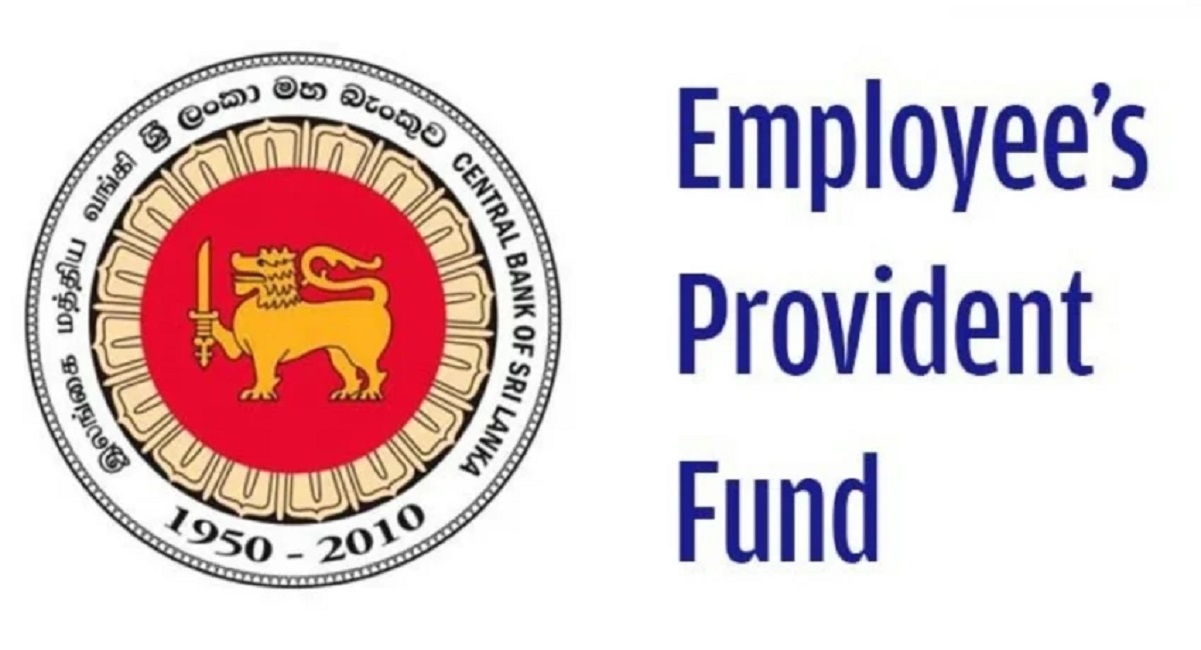
EPF's equity investment records growth
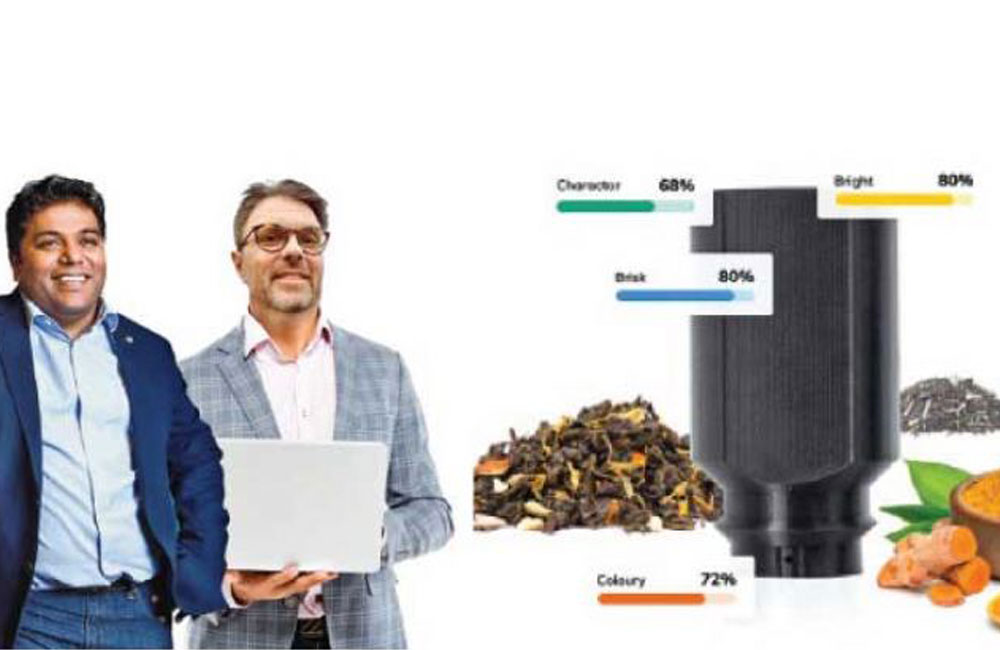
Spectrify AI to launch agri-tech revolution in Sri Lanka
Spectrify AI, a part of VeracityAI Sri Lanka’s fastest going AI company, has announced the launch of a new suite of solutions specifically designed to radically optimize production, agri-inputs, and quality control across the entire value chain for tea, spices and herbs – a first in Sri Lanka.
Leveraging the very latest advancements in spectral scanning, artificial intelligence and machine learning, Spectrify AI delivers end-to-end consistency on quality standards directly into the hands of producers and value chain partners.
This is accomplished by deploying extremely low-cost patented spectral scanners paired with AI to conduct real-time spectral analysis of everything from soil composition to the chemical make-up of tea, spices and herbs at every point from field to factory to the final buyer, the company said in a media release.
“Despite a rich history and unmatched legacy of quality, Sri Lanka’s agri and plantation industries are yet to even approach their full potential. Ultimately this is due to a lack of good data," the statement said.
"While most view this as a challenge, we see a massive opportunity in deploying new tech to overcome traditional bottlenecks, drastically optimize on cost of production, and ultimately recapture our nation’s reputation for the very highest quality tea, spices and herbs in the world,” serial entrepreneur and Spectrify AI co-founder, Jeevan Gnanam said.
Spectrify AI’s capabilities can also be merged with Veracity AI to analyse satellite imaging of land to track harvest development and study historical data to predict yields and risks.
Additionally, Spectrify AI also offers integration with GoMicro, another groundbreaking AI detection tool that converts any smart device with a camera into a powerful handheld microscope for instant analysis and identification of plant pests and diseases.
“The future of agriculture is technology, and it is already here today. The reductions in cost and growth in capabilities of spectral imaging analysis have the potential to be more impactful to global economies and societies than the agricultural and electronic revolutions combined," he said.
"Using AI and spectral imaging, we are gaining the ability to standardize, systematize and optimize agricultural production on an unprecedented scale. Our goal with Spectrify AI is to showcase this potential, and in the process, make Sri Lanka a hub for agri-tech innovation,” Deep Technology Entrepreneur and Spectrify co-founder Mike Richardson said.
A subsidiary of SAKS, Veracity AI specializes in data and machine learning technologies to drive AI applications. Ever since its establishment in 2018, Veracity AI has been transforming companies by providing personalized, intelligent business models and product development strategy and prototyping in the areas of Data Science, Machine Learning and Artificial Intelligence.
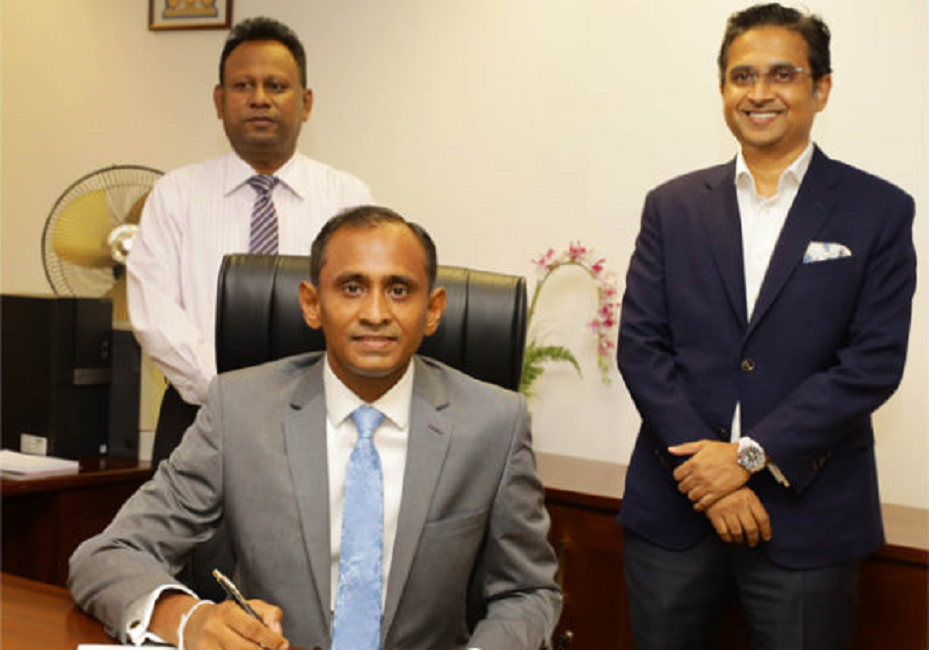
Pasan Wanigasekera assumes duties as new DG of BOI
Pasan Wanigasekara has assumed duties as Director General of the Board of Investment (BOI) today.

Softlogic Holdings to focus on cash flow issues
“Cash is king amidst prolonged uncertainty and our strategy is to manage EBITDA in the short term,” Pathirage told shareholders in the annual report 2019/20.
Pathirage stated that they have undertaken a Group-wide initiative to streamline costs which continues to be monitored and reinforced to support cash flow management.
“We have also renegotiated our interest rates with banks to reflect market rates which have declined sharply, supporting the bottom line and cash flow,” he said.
Pathirage further announced that the company signed contracts with third parties to expand and build their retail operations and added that work has commenced on many projects which will be completed in the near future.
The landmark hypermarket in Mount Lavinia opened in November 2020, realising part of our long-term retail strategy to build destinations offering unique retail experiences to consumers on par with developed markets.

Cinnamon Life set to operate casinos in SL
The government is expected to give the green light to house casino operations in the upcoming Cinnamon Life mixed development project as the new administration is keen on doing everything at their disposal to attract a new segment of tourists as well as to invite significant investments into the country’s condominium market.
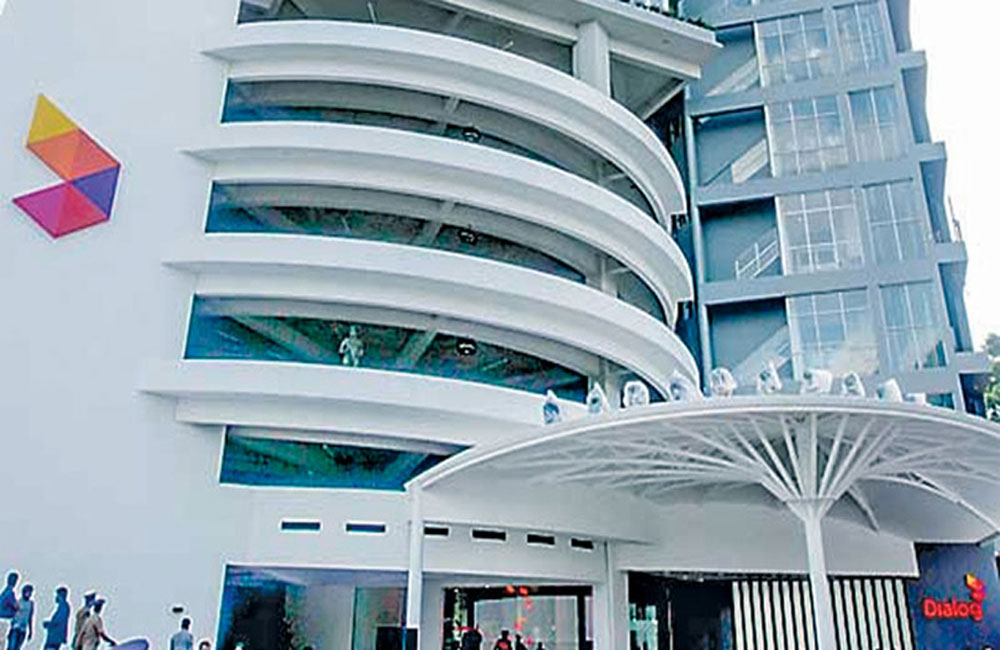
Dailog to acquire Microsoft enterprise solutions provider 'H One'
Sri Lanka’s Dialog Axiata PLC (“Dialog”), Sri Lanka’s premier converged connectivity provider, announced yesterday (23) that it had entered into an agreement to acquire 100% shareholding in H One (Private) Limited. This acquisition has been completed through Dialog Broadband Network (Private) Limited (“DBN”), a fully owned subsidiary of Dialog.
H One founded in 2008 as a subsidiary of Hirdaramani Group, is the largest reseller of Microsoft (MSFT) enterprise solutions in Sri Lanka with an annual turnover of circa LKR 1.6 Billion.
The transaction is expected to be completed before end of January 2021, at a Purchase Consideration of between LKR 300 million to LKR 350 million on a cash free debt free basis.
“The acquisition of H One by Dialog would supplement Dialog’s expansive suite of enterprise solutions and would facilitate acceleration of the digital transformation of Sri Lanka’s Enterprise Sector.
The combination of Dialog’s expertise in advanced digital technologies and the leading edge capabilities of H-One will create a Centre of Excellence for the scaling of Microsoft Platforms and Enterprise Solutions” stated Supun Weerasinghe, Group Chief Executive of Dialog Axiata said.
“H One is the leading Microsoft services provider in Sri Lanka delivering innovative solutions to many top corporates in the country. We are confident that Dialog will continue to drive the consistent growth and innovation that has been a huge part of the company’s success to date," he added.

Sri Lanka facilitates payment receipt facilities including PayPal
Presenting the monetary and financial sector policies for 2021, Governor said on Monday that he expects positive outcomes in this regard in the near future said and they expect positive outcomes in the near future.
“The Central Bank is actively seeking possibilities to develop and promote other forms payment mechanisms to attract capital flows and to enable e-commerce, thus facilitating cross-border trade. An implementation framework for Open Banking in Sri Lanka is being investigated,” he said.
As the future of the global financial architecture is essentially digital, the Central Bank will continue its deliberations with local and international stakeholders on its treatment of digital currencies, using thorough cost benefit analyses and a long-term perspective.
Sri Lankan youths engaged in web design and development, graphic designing and more have made a request from the high officials at meeting number of times but to no avail, a group of youths said.
One of the problems the entrepreneurs are facing today is the absence of a mechanism to receive payments online from the consumers if they are engaging in e-commerce in its proper sense.
At present Sri Lankans can send money to any PayPal user, but they cannot receive money from anyone through PayPal.
So clients deny offers from local freelancers working online as they are required to use complex money transfer methods and hire people from countries that support PayPal, several members of Online Entrepreneurs Society complained.
The government is now very keen to bring PayPal or a similar facility for the benefit of information technology workers who also want to receive inward payments, official source said.

South Africa willing to cut tariffs for Sri Lanka's tea exports
South Africa has expressed willingness to bring down tea tariffs for a period of time not extending three years, the outgoing High Commissioner in Colombo, Robina P. Marks said.
She made this disclosure when she was delivering the inaugural address at the 'Sri Lanka – South Africa Business Promotion Meeting' held in Colombo recently.
She further underscored the need to recalibrate its trade strategy in Sri Lanka and the desire for a more balanced trade relationship between the two countries.
“Even though national interest is important to all countries, South Africa also wants a more balanced trade between the two countries. Sri Lanka and South Africa consider that it's important because they both need to work on the basis that each has something to offer in this bilateral relationship,” she added, commenting on bilateral trade ties in the COVID-19 era.
The Foreign Ministry said South Africa has been able to expand its trade footprint in Sri Lanka and that overall trade stood hugely in favour of her country.
South Africa is Sri Lanka’s largest source of imports and the second largest export destination in the African region.
Imports from South Africa largely consist of coal while Sri Lankan exports consist of tea, apparels and rubber products.
In terms of investment, High Commissioner Marks said that international retail brand, SPAR, through a joint venture between SPAR Group Ltd South Africa and Ceylon Biscuits Limited has opened four outlets in Sri Lanka with plans to expand up to 20 retail stores.
High Commissioner Marks also exchanged views with representatives of the Sri Lankan businesses community on the possibility of boosting fish exports to South Africa, value addition and knowledge sharing in the gem and jewelry industry, opportunities in the renewable energy sector and sharing expertise in food preservation in the canning industry.
Page 7 of 29